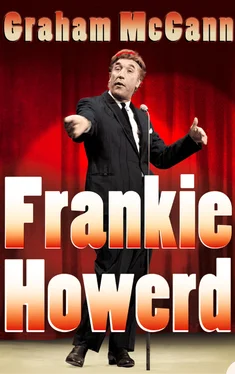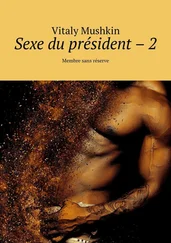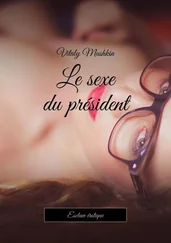Vera Roper, his old friend and stooge, had agreed to accompany him there to provide some much-needed moral support, but, in an unwelcome imitation of her on-stage unreliability, she failed to turn up. The reality was that she had fallen ill, but, as neither she nor Howard owned a telephone, he was left to pace anxiously up and down on the pavement outside, waiting in vain until he very nearly made himself late.
Things went from bad to worse when, reluctantly, he entered the building alone and made his way up to Barnardâs office. âGot your band parts?â barked Barnard from behind a fat and angry Havana cigar. Howard (failing to grasp the full seriousness of the faux pas ) confessed that he had not thought to bring any sheet music, but added that he would definitely have arrived with a pianist if only his accompanist had not reneged on her promise to accompany him. This provoked plenty of smoke from the scowling Barnard, whose face had just grown redder than the glowing end of his cigar.
Howard, still somehow oblivious to the obvious danger signs, then pointed a thumb over his shoulder in the general direction of the gleaming new office piano and enquired if there was âanyone around who could play âThree Little Fishesââ for him. This provoked plenty of fire: Barnard, according to Howardâs subsequent embarrassed account, leapt up from behind his desk and promptly âwent berserkâ. 12
Launching into a screaming tirade that rocked Howard back in his seat, Barnard told him that he was an unprofessional and impertinent timewaster, unworthy of begging the attention of a bored gallery queue in Wigan â let alone a top-notch metropolitan agent. âHe went on and on,â the traumatised performer would recall, âwhipping himself into a frenzy of near-apoplexy â while I sat literally shivering with terror.â 13 Eventually, having shouted himself into exhaustion, Barnard slumped back down into his chair, reached for another cigar, and, waving a hand dismissively in the direction of Howard, snarled: âWait outside.â 14 Howard did what he was told.
He ended up waiting outside for four solid hours. During that time spent sitting in silence on his own, he went all the way from quivering terror through meek contrition to angry resentment (â Who the hell does he think he is? â). When, at last, the call came that âMr Barnard will see you nowâ, Howard was firmly in the mood for retaliation: âThe worm not only turned, but grew teeth.â 15
âI wouldnât go near that man for all the tea in China,â he screamed at Barnardâs startled secretary. âIâve never been so insulted in all my life, and Iâm not so desperate that Iâll go on my hands and knees to that ignorant pig. Iâd rather not be in show-business at all â and thatâs that.â 16
The secretary had obviously been screamed at before, because, once her ears had stopped ringing, she simply patted Howard on the shoulder and advised him to calm down: âSwallow your pride. You may never get this sort of chance again.â Howard, however, was having none of it. With widened eyes and scarlet cheeks, he raged at all the rudeness, injustice and contempt he had suffered, not only that day but on so many, many days before, and then, folding his hands over the top of his head, moaned that he was in no mood now to put right what had gone so horribly, utterly wrong. âHave a go,â said the secretary with a sympathetic smile, and guided him by the arm back to outside the door of the managerâs office. 17
So many thoughts, so many options, bounced around in Howardâs head during the handful of seconds that he hovered outside that door: turning the other cheek; punching the other cheek; begging forgiveness; offering forgiveness; speaking his mind; biting his lip â countless ticks and an equal number of crosses. In the end, as he moved to open the door, he settled on speaking his mind.
Crashing into the office and racing straight up to the desk, Howard fixed his tormentor with his very best baleful glare and, stabbing the smoky air with his finger for emphasis, he screeched: â I am now going to make you laugh, you clot. Youâre going to fall about with laughter, you idiot. Because Iâm a very funny man, you oaf! â 18 Then he noticed that Barnard was shaking.
He was shaking neither with fear nor rage, but rather with laughter. âThatâs a great act. Great. Itâs a hoot,â he cried, shaking his head, wiping his eyes and smiling broadly. âCan you do any more?â 19
Howard, having purged himself of all fury, did a quick double-take and then proceeded to do his proper act. He was more disorientated than genuinely relaxed, but what he did went down so well that Barnard now thought nothing of summoning a pianist to support his rendition of âThree Little Fishesâ. When it was all over, Barnard shook Howard warmly by the hand and assured the exhausted performer that it had been the best âcoldâ audition he had ever seen. He hired Howard on the spot, and then arranged for Jack Payne, the self-styled capo di tutti capi of the post-war Variety world, to see his newest client perform in front of an enthusiastic military audience at Arborfield in Berkshire. Payne (who had no recollection of his pre-war encounter with Howard) arrived in time to watch him steal the show.
Barnardâs initial idea had been for Howard to make his debut as a professional in a relatively run-of-the-mill touring show in Germany. Payne, however, preferred to entrust the monitoring of his early career to Bill Lyon-Shaw, and so he was drafted instead into a far more prestigious new domestic revue by the name of For the Fun of It . Produced by Lyon-Shaw, it boasted such well-established names as the veteran stand-up Nosmo King, the comedy double-act of Jean Adrienne and Eddie Leslie and, topping the bill, the hugely popular singer Donald Peers. Howard joined two other fresh professionals â his fellow-comic Max Bygraves and a contortionist called Pam Denton â at the bottom of the bill in a special showcase for ex-Service performers entitled âTheyâre Out!â
Before the tour began, Howard sat down and invested an extraordinary amount of careful thought into how best to shape his on-stage persona. Desperate to get his professional career off to a strong and certain start, he analysed every aspect of his act â from what he should say (and how he should say it) to what he should wear (and how he should wear it) â and gradually built up an idea, and an image, of the kind of distinctive performer he wanted, in time, to become.
First of all, he reflected on what he most admired about his own comedy heroes â and what he could take from them and then adapt for himself. When he thought, for example, about two of his favourite American performers, Jack Benny and W.C. Fields, he drew inspiration from the prickliness of their respective images (Benny the hopelessly vain and miserly old ham, Fields the drunken and cynical old fraud) and the unusually sharp, self-aware and defiantly pathos-free nature of their material.
What he found especially refreshing was the fact that neither of these fine comedians (in stark contrast to the vast majority of their peers) was enslaved by any obvious need to be loved. It did not matter to Benny if anyone actually believed that he was waited on day and night by an African-American servant (whom he rarely, if ever, bothered to pay), or wore the cheapest toupee in Hollywood, or refused to acknowledge that he had long since passed the age of thirty-nine, or, when asked by a mugger to choose between his money and his life, resented being hurried â âIâm thinking it over!â
Читать дальше












